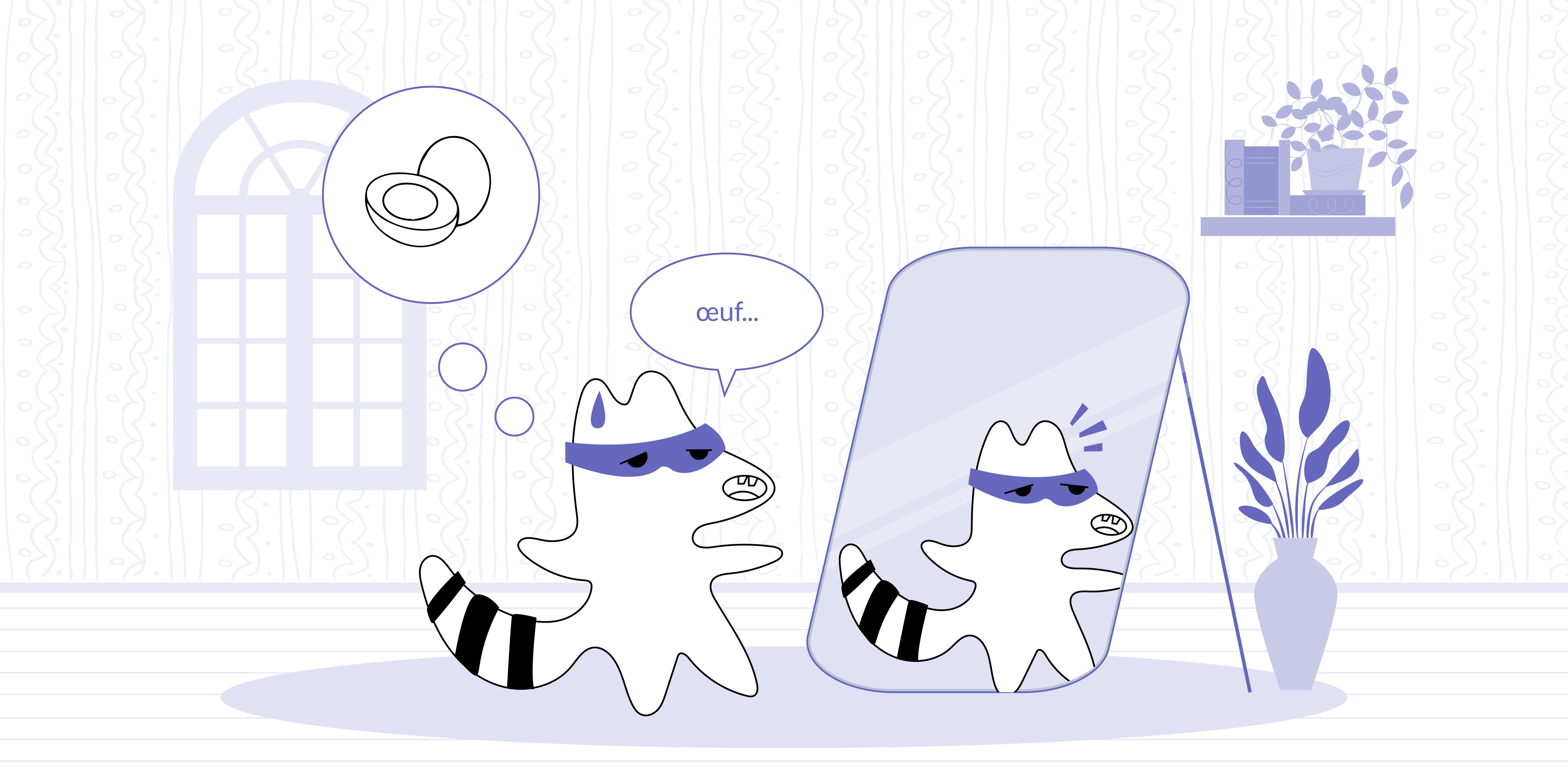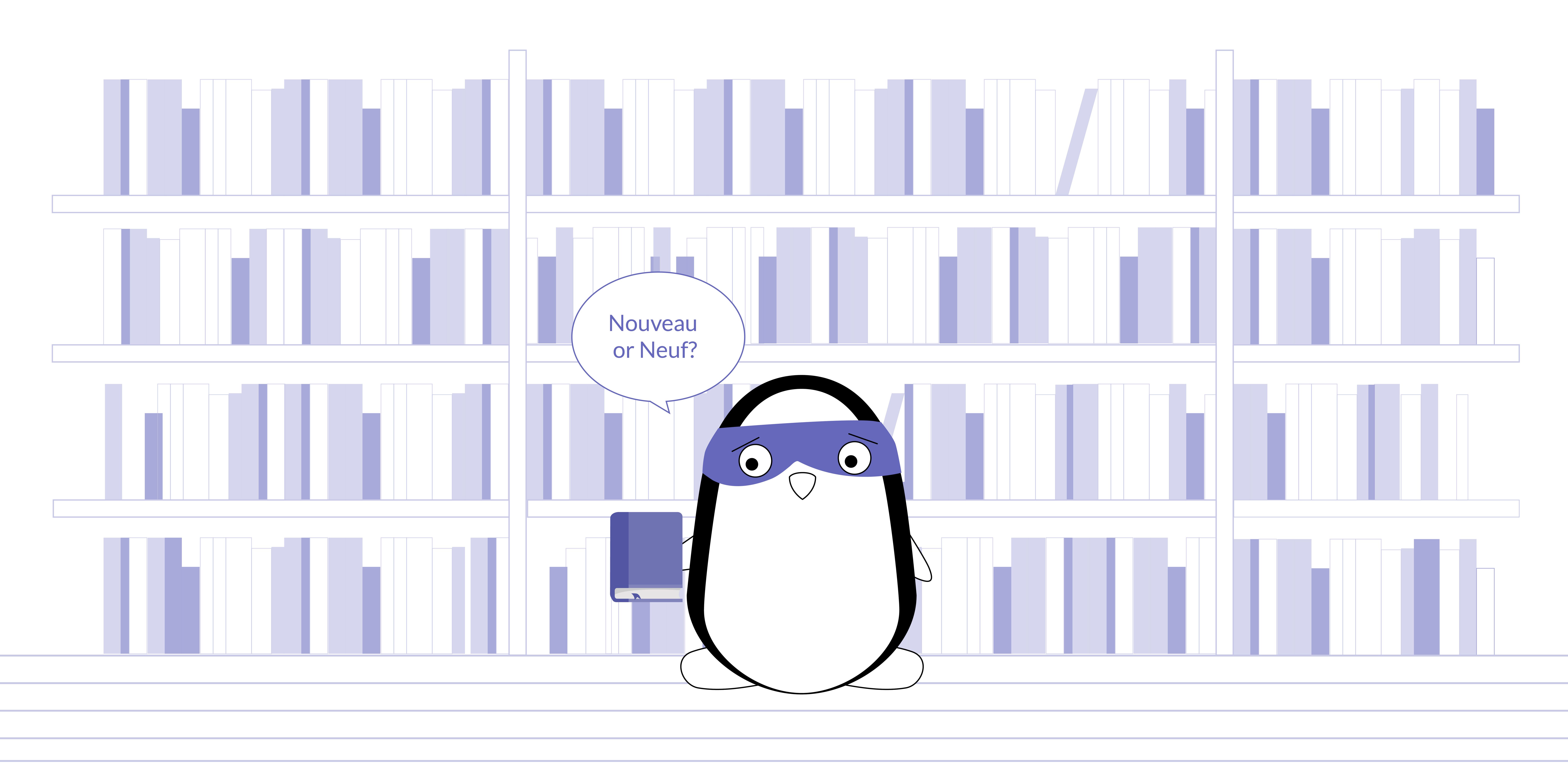
When you are learning a language, first of all, you need to get familiar with several basic terms, such as “hello,” “goodbye,” and “thank you.” These helpful phrases can ease the time you spend in a foreign country and help you communicate with the locals.
We have already covered some of the basic phrases, and now it is time to learn how to express gratitude in French.
Whether you’re leaving a store or having dinner at your French friend’s home, it is essential to know a proper way to say thank you in French. And, trust us - there are a lot to choose from.
“Merci,” “je vous remercie,” and even “cimer” - in this article, we’ll cover the 10 most common ways to say thanks in French. Read on and learn how to express your gratitude when in France.
Learn French with Langster
Let’s Start With the Basics - “Merci”
“Merci” is the most popular expression when saying thank you in French. It’s the first thing we recommend learning when covering today’s topic. Easy and versatile, it can be used in many different situations - whether you’re talking to your friend, mom, or a complete stranger. And don't be stingy with your "mercis" - in French culture, common courtesy is very important.
French
English
Merci
Thank you
There’s only one context when the word “merci” isn’t acceptable - in a particularly formal setting. Don’t use it with your strict boss.
How to Respond to “Merci”?
When responding to “merci” you can say, “merci à tous” or “merci à vous,” which is literally translated as “thank you.” Or check our other article about how to say "you're welcome" in French.
You can also use this word in other French phrases:
French
English
Merci bien/merci beaucoup
Thank you very much
Merci pour tout
Thank you for everything
Merci pour le repas
Thank you for the meal
Merci d'avance/merci par avance
Thank you in advance
Merci de tout coeur
Thank you with all my heart / Thank you from the bottom of my heart
Merci à toi
Thank you (emphasis on "you", often used in dialogues, informal).
Merci infiniment.
Thank you so much (literally: thank you infinitely).
Grammar and Pronunciation
When it comes to grammar, there’s nothing complicated here. You can simply say “merci” when the situation allows for that.
Or, if you want to say “thank you for something,” use “merci pour” followed by a noun. For example, if you want to say “thank you for the croissants, you can say “merci pour les croissants." You can also say, “merci de” followed by an infinitive or past infinitive when you thank someone for doing something.
The best thing about “merci” is that it’s pretty easy to say - you can simply read the word out loud. However, if you want to learn how to pronounce it, make sure to check our app.
Formal Way to Say Thank You - “Je Vous Remercie”
If you want to say thank you in French in a more formal way, use “je vous remercie” - “I thank you.” It works similarly to “merci,” and the only difference is that “je vous remercie” is a complete sentence that uses a French verb remercier - to thank.
French
English
Je vous remercie
I thank you (formal)
At work, in class, when talking to your business partner - all those situations require a polite way to say thank you.
Grammar and Context
What to remember when using this phrase to express gratitude? Use the pronoun “vous” - this will help stick to the formal atmosphere. Using “te” can be considered impolite if you don’t know the person well.
We have already covered the sentence construction in an earlier article about saying “I love you” in French. In case you don’t remember, here’s a refresher: in the French language, we use the following subsequence: Subject - Object - Verb. I - You - Thank.
Informal But Classy - “Je Te Remercie”
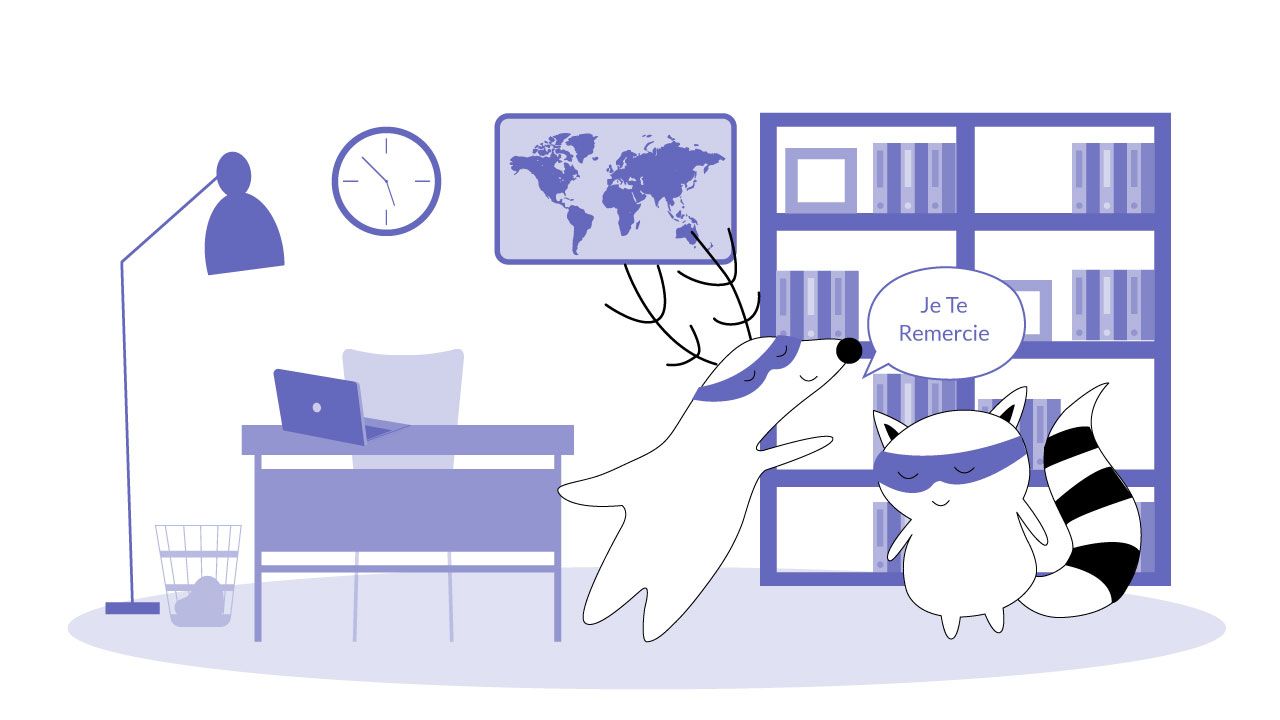
“Je te remercie” is an informal alternative to “je vous remercie.” You probably won’t use it in formal situations, but it is a great way of saying thank you in French to a friend or a person you know.
French
English
Je te remercie
I thank you (informal)
Don’t know whether to use “je te remercie” or “je vous remercie?” That’s simple - when in doubt, always use “vous.” It’s better to make the mistake of being overly formal than overly casual.
Pronunciation
The key thing to remember when pronouncing this and other phrases is that when you say “je,” “te” (as well as “le” and some other French words), the “e” will sound like e in “her.”
When You’re Very Grateful - “Merci Beaucoup”
If you are very grateful and simple “merci” just won’t cut it, go for “merci beaucoup” - “thank you very much”. This expression is one of the most popular ways of saying thank you in French, and it can be used in almost any situation.
Whether you’re talking to colleagues or purchasing something in the store, polite Merci beaucoup (thank you very much) will always sound good.
Another variation of this phrase is “un grand merci” - “a big thank you,” which is usually used with prepositions “à.” For example, you can say Un grand merci à Marie (a big thank you to Mary).
You can also say “merci bien” instead of merci beaucoup - it means the same, but sounds slightly less formal.
French
English
Merci beaucoup
Thank you very much
Merci bien
Thank you very much / thanks a lot (less formal)
Un grand merci
A big thank you
When Texting - “Mci”
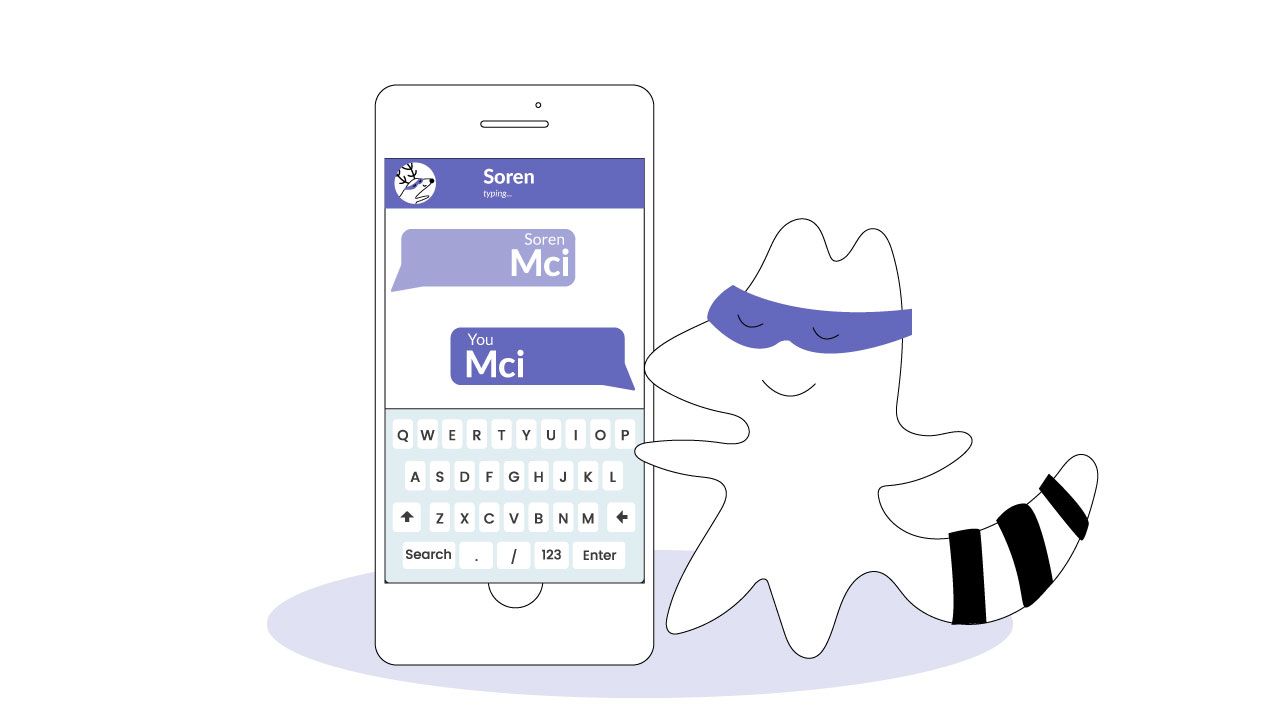
Just like English speakers, French people use abbreviations and short versions of words when texting. “Mci” is one of them - and it literally means something like our “thx.”
It’s the word that you will come across often if you text with someone in French - and it’s simply a short version of “Merci.” Use it with your friends and peers, but remember that “Mci” is informal - and avoid texting it to your boss.
French
English
Mci
Thx
When Someone Helped You - “Mille Mercis” or “Merci Mille Fois”
“Mille mercis” literally means “a thousand thanks” or "thanks a million" - and it can be used when you’re really grateful for something. While, just like “merci,” it shouldn’t be used in particularly formal situations, you can say it pretty much to everyone.
For example, if someone answered your question online or showed you the directions in the street, you can say Mille merci. Or, if you want to make it sound a little more formal, use Merci mille fois (thank you a thousand times).
French
English
Mille mercis
A thousand thanks
Merci mille fois
Thank you a thousand times
Grammar and Pronunciation
That’s strange, but, as you could have already noticed, “mille” doesn’t mean “a million” in French. Instead, it means “a thousand” - and that’s where many French learners (ourselves included) are often confused.
However, that’s not the only thing that makes the word “mille” interesting. There’s also pronunciation.
As you may know (or not), the ll sound in the combination -ill in French sounds like “y” [j] - for example, in the word “fille’. However, there are a dozen exceptions to this rule - and “mille” is one of them. Here, you will pronounce the ll like [l] - so simply say mil.
When in Rome… “Cimer” in French Slang
In French, there is something called Verlan - it’s a form of language game or argot. It’s a lot like English Pig Latin. It’s very popular, and many young people like to use it as a form of slang.
It can be super confusing, but if you want to sound like a native when talking to your friends or peers, Verlan can make it happen. Simply use “cimer” instead of saying “merci” - and enjoy how bedazzled everyone looks.
French
English
Cimer
Merci (thank you) - slang
What About the Context?
Just remember that “cimer” is super informal - so don’t use it at the office, in the bank, or in any other situations when you’re not surrounded by friends.
Moreover, it can sound pretty strange when used by a foreigner - so consider the situation and the context before saying it. When used properly, “cimer” can sound like a hip way to say thanks. But if you don’t know French well, you can easily make a faux pas.
Talking to a Friend? “Merci, Mon Ami/e”

Looking for a French alternative of “thanks, mate”? “Merci, mon ami/e” might do the trick. However, be aware that French ami/e (friend) does mean a friend for life.
If you call a French person your ami/e and then don’t contact them anymore, this will be considered very rude. Moreover, you can seriously hurt someone’s feelings.
French
English
Merci, mon ami/e
Thank you, my friend / thanks, mate
Grammar and Context
So, when to use it? When talking to friends, of course - whether you’re close or not so much. However, don’t use it when talking to colleagues you don’t often communicate with, your boss, or complete strangers. For such situations, “merci” and “je vous remercie” were created.
You will use different suffixes with “ami/e” depending on your friend’s gender (or gender they identify with). “Ami” is the male version, while “amie” is the female version.
No, Thank You - “Non, Merci”
When someone offers you something you don’t want or need, you will say Non, merci (no, thank you). This polite response will show that you’re uninterested in their offer in a short and sweet way.
Don’t want an extra helping of the main dish at your grandma’s house? Or don’t want to buy a street artist’s painting? Or don’t need another glass of wine in the restaurant? Non, merci will do the trick.
French
English
Non, merci
No, thank you
Learn This for Christmas: “C’est Vraiment Gentil de Votre Part”
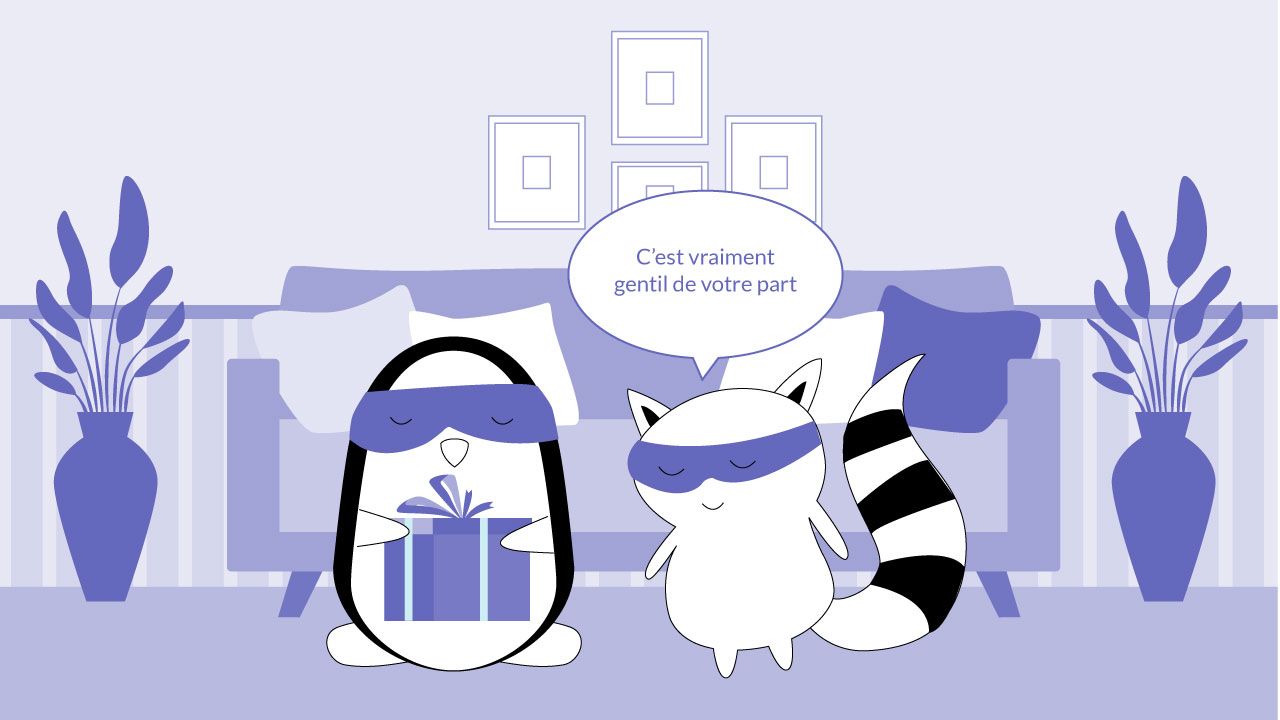
While this phrase is commonly used during Christmas, birthdays, and other holidays, it’s not uncommon to hear it on a daily basis. “C’est vraiment (or très) gentil de votre part” basically means “that’s very kind of you.”
You can also make it sound a little less formal by deleting the adverb and saying just "C'est gentil de votre part" or even "C'est gentil de ta part."
French
English
C’est vraiment gentil de votre part.
That's very kind of you
C'est gentil de votre part.
It's kind of you.
C'est gentil de ta part.
It's kind of you (informal).
You will say this to your grandparents or aunt and uncle when they give you presents for the holidays. You will also use it when your boss gives you a raise, a business partner agrees to something, or a classmate offers to help with your homework.
Pronunciation
This may not be the simplest phrase to say, but if you already know some basic pronunciation rules, it won’t be too challenging. Remember that:
- s and t at the end of the words are silent,
- ai is pronounced like é or è,
- and e in de sounds like e in girl ([ə]).
Also, in French adverbs, such as “vraiment” here, the -ent ending is not silent (unlike it is with verbs). It will sound like [ɑ̃] - listen to it in the Langster app.
Final Thoughts: Don’t Only Stick to “Merci”
Learning some basic phrases is essential when you begin your journey with any language, and “thank you” is one of them. However, sticking to just one translation of this expression is boring - and can cause some trouble in different situations.
While “merci” may be a very popular way of saying thanks in French, it doesn’t sound good when you’re talking to your strict boss. If you’re texting with a friend, it can also be too much.
“Merci beaucoup”, “cimer,” “je te remercie” - these are just some of the expressions you can use to say thanks in various social situations.
We hope that this article has made your life easier and your communication in French more professional. After all, that’s what we do at Langster - help you learn French in a less complicated and much more professional way.
Learn French with Langster








